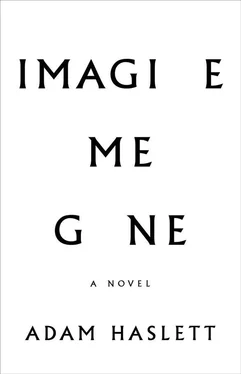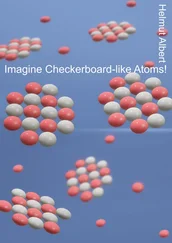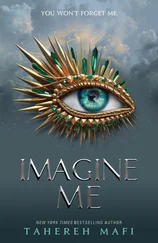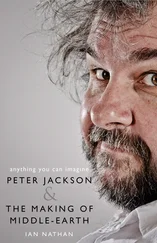When I arrive back at the house, Michael’s already made the coffee.
A few weeks after he left the hospital and moved in, I started having heart palpitations. I went to my doctor, assuming they were caused by the strain of his return. But the first question he asked was whether I’d been having more caffeine than usual. Unbeknownst to me, I had — triple the dose — drinking Michael’s brew. So now I take just a third of a mug and add water from the kettle.
I tell him I’m meeting Suzanne for lunch later. Because my car is in the shop, I need to borrow his. “I could give you a ride,” I add, hoping he’ll want to come into the city. He goes once a week or so, to see friends, I’d like to think, but I don’t interrogate him.
“Right,” he says, the idea at least registering.
As we’re finishing breakfast, Dorothy, from next door, appears on her front steps with her dog, Tilly, on the leash, which reminds me of the clippings from the paper I want to give her. She smiles and waves when she sees me coming across the yard with them.
“These are silly,” I say, “but I’ve been meaning to leave them on your doorstep. I thought they might amuse you.”
She thanks me, putting them in the pocket of her windbreaker, and we marvel at the glorious weather. I haven’t gotten around to mentioning anything to her about the possibility of my leaving the neighborhood. I don’t want to set everything in motion before I have to.
“How’s Michael?” she asks in her usual cheerful tone, giving me a chance to say whatever I want, but keeping it light enough that I don’t have to go into anything I’d rather not. I’ve always appreciated this about her, from the time she first moved into the neighborhood with her two children, soon after John died. She’s not afraid to talk about anything, but she isn’t insistent either.
After I tell her we’re going into the city for the afternoon, she asks if we’d like to come over for stew later. I’ve eaten at her house umpteen times, and she in mine, but for some reason this morning her offer of dinner thrills me.
“That sounds wonderful,” I say.
“Just knock, I’ll be here.”
As I turn back up the driveway, Michael’s dreadful bumper sticker confronts me: I HATE MY LIFE, printed in big black letters on a white rectangle. He has no other bumper stickers — no flags or political slogans — just the rusted Pontiac emblem and I HATE MY LIFE, ludicrous and stark, there for Dorothy and anyone else who passes by to cringe at. I sometimes reverse the direction of the car, so that the sticker faces the garage, which Michael never seems to notice, but I can’t do it every night.
I had to drive his car through the middle of town yesterday with that plastered on the back of it, everyone assuming the sentiment was mine. In the grocery-store lot, the bag boy could barely keep himself from laughing. It’s absurd. And now I’m supposed to drive all the way to Boston.
I’ve had it. I walk into the garage, find the least ancient ice scraper on the shelf, and set to work. It’s hard going, and I have to lean my weight into it, but the plastic edge does raise the sticker, bit by bit. I’m just about done with HATE when Michael sees me through the dining room window and steps out the front door to ask what I’m doing.
“What does it look like? I’m getting rid of this awful thing.”
“But it’s my car.”
“That may be, but I have to drive it. And I’m not driving it with this on it. It’s ridiculous, Michael. It’s so negative .”
“It’s a song. From the Pernice Brothers.”
“It’s perverse, that’s what it is. Why in the world would you want to advertise such a thing?”
“You’re worried about who’s going to see it?” he asks, as if that were a bizarre concern.
“You don’t hate your life, Michael. No one hates their entire life. It’s juvenile.”
He steps closer and glances down at the crinkled paper that hangs from the MY LIFE still adhered to the metal. Then, without a word, he takes the scraper from my hand.
I’m amazed by the assertion of his move. Shocked, even. I can barely believe it. He never does such things. I’m almost thankful. So what can I do but keep my sudden disappointment to myself when he steps past me and begins scraping away at what’s left.
Driving along the pike, he stays in the right-hand lane behind a Hood Milk truck going fifty miles an hour. Alec would be whipping along, as if enacting some espionage fantasy, leaving me to grip the door; Celia would be in the middle lane; and Michael a decade ago wouldn’t have realized how fast he was going, but now we remain stolidly behind the truck, and I say nothing.
We park on Boylston, near Copley, and he hands me the keys, saying he’ll take the T back and get a bus home from the station. I tell him that if he lets me know where he’s going to be, I can swing by when I’m through and give him a ride, if he’s ready. He says maybe the record shop on Mass. Ave., but that I shouldn’t worry about it, and then he walks off, the hood of his sweatshirt up over his head despite the plentiful sun.
At the restaurant, Suzanne is already installed in a booth, enjoying a glass of white wine. She’s wearing a scoop-neck blouse and her red jade necklace, with her voluminous, dyed-black hair down over her shoulders. In all the years we’ve worked together, she’s changed remarkably little. She’s still forever on the make.
She hands me the wine list as soon as I’m in my chair. “What are you having?” she says. “It’s on me today. I’m celebrating. Don’t ask me what, I’m just celebrating.”
The waiter, a conventionally handsome boy in his twenties, approaches.
“Do you ever do that?” she asks him. “Celebrate for no reason.”
“Sure,” he says, smiling gamely.
Right away, she starts in on gossip. The new library director’s salary is apparently out of all proportion to what the rest of the staff earns; a member of the board is suspected of philandering with the wife of an Argentinian businessman; and the boy caught vandalizing the men’s room turns out to be the younger brother of the previous vandal, which I’d already heard, but it serves up anew the question of the boys’ stupendously wealthy and neglectful parents. I’ve never had Suzanne’s talent for being scandalized. To be able to entertain oneself so fully is a skill of sorts. Particularly given the material at hand.
She’s on her second glass of wine by the time we finish our salads, while I’ve barely touched my first. At work she’s always whispering, her facial expressions tightly controlled, but in this half-empty restaurant, she gestures broadly, her eyes widening at the news she herself reports.
Eventually, in the lull of attending to her trout, she manages to inquire about Michael and the house sale, like small talk at an intermission. “What do his doctors say?”
“They hear about John, and that’s it. They’re convinced it’s in the genes. Which I’m sure is part of it. But they didn’t know them both. Michael’s not his father. His father didn’t spend so much of his time caught up with other people’s suffering, the way Michael does with everything he reads.”
“Misery loves company.”
“How do you mean?”
“I’m an alcoholic,” Suzanne says. “I suppose I’ve never said it to you flat out like that before, but it’s not a surprise, right? Some people take pills. Some people go to church. I drink. Everybody’s got something. I’ve known Michael a long time now. He’s a tense guy. Doesn’t have a lot of outlets. He suffers. What I’m saying is, it’s identification, all that reading he does. It’s what we tell the school groups when they read novels — see yourself in someone else’s shoes. Right? There’s nothing ambiguous about slavery. Plenty of misery there.”
Читать дальше












